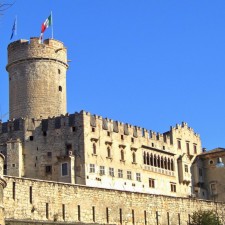
Academic Timetable of the
8th Pan-European Conference on the European Union
is now available
“The Union’s Institutional and Constitutional Transformations: Stress or Adaptation?”
16 -18 June, 2016
University of Trento, Trento, Italy
The Academic Timetable is now available on the SGEU ECPR webpage
A pdf version is also available via the Timetable page if you would like to print it. Please note that as we near the Conference Panels can change so do keep your eye on the website for the most current version.
The Timetable takes into account all the scheduling requests received and if we have been able to we have met the request.
Online registration has now closed but if you have a role in the Conference (Presenter, Chair, Discussant) please let Becky Plant know that you are attending so you can be manually register. Every person planning to attend must be registered to attend and pay the Conference fee.
If you are unable to attend and therefore will not be able to present your Paper (if applicable) please do let Becky Plant <bplant@ecpr.eu> know as soon as possible.
Please book the hotel accommodation as soon as possible. You will soon find a list of hotel at this link to Conference Hotels
Description of the Conference
The European Union has been recently undergoing momentous periods of stress due to both internal (Euro, EMU) and external (Libya, Ukraine, refugee) crises. Reactions to these crises have been differentiated, ranging from significant institutional and constitutional transformation to piece-meal adaptation. While the management of the Euro-crisis, the further strengthening of the EMU and, to some extent, surreptitious progress towards a budgetary and fiscal Union have been characterized by landmark decisions which have transformed the institutional and perhaps also the constitutional complexion of the Union, in foreign matters innovations have been less apparent and less dramatic and have mostly occurred along conventional tracks.
In and of itself this is nothing new. The life of the EU has been constantly characterized by a marked lopsidedness between powerful internal structuring and weak external engagement. However, never before has this unevenness been more strident. While significant sacrifices of sovereignty are requested of Euro-zone member states in terms of their budgetary decisions (and procedures), their mid-term macroeconomic objectives and their planned structural reforms, in foreign and security matters member states cling to, and possibly even claim back, shares of Westphalian sovereignty. Can these two opposed lines of development proceed any further without causing significant tensions and stress in the entire EU edifice? Can two equally significant aspects of state sovereignty and liberal democracy – the domestic and the foreign – be governed by such disparate institutional arrangements? Will the Union eventually recompose these two spheres or will they be driven further and further apart by dynamics that differentiate it into core and peripheral circles? And can internal regulatory and structural policies alone hold the European project together? Papers addressing these issues from a range of perspectives, not only institutional, are welcome.
Check the Conference Website for key dates and deadlines, list of sections and latest news

